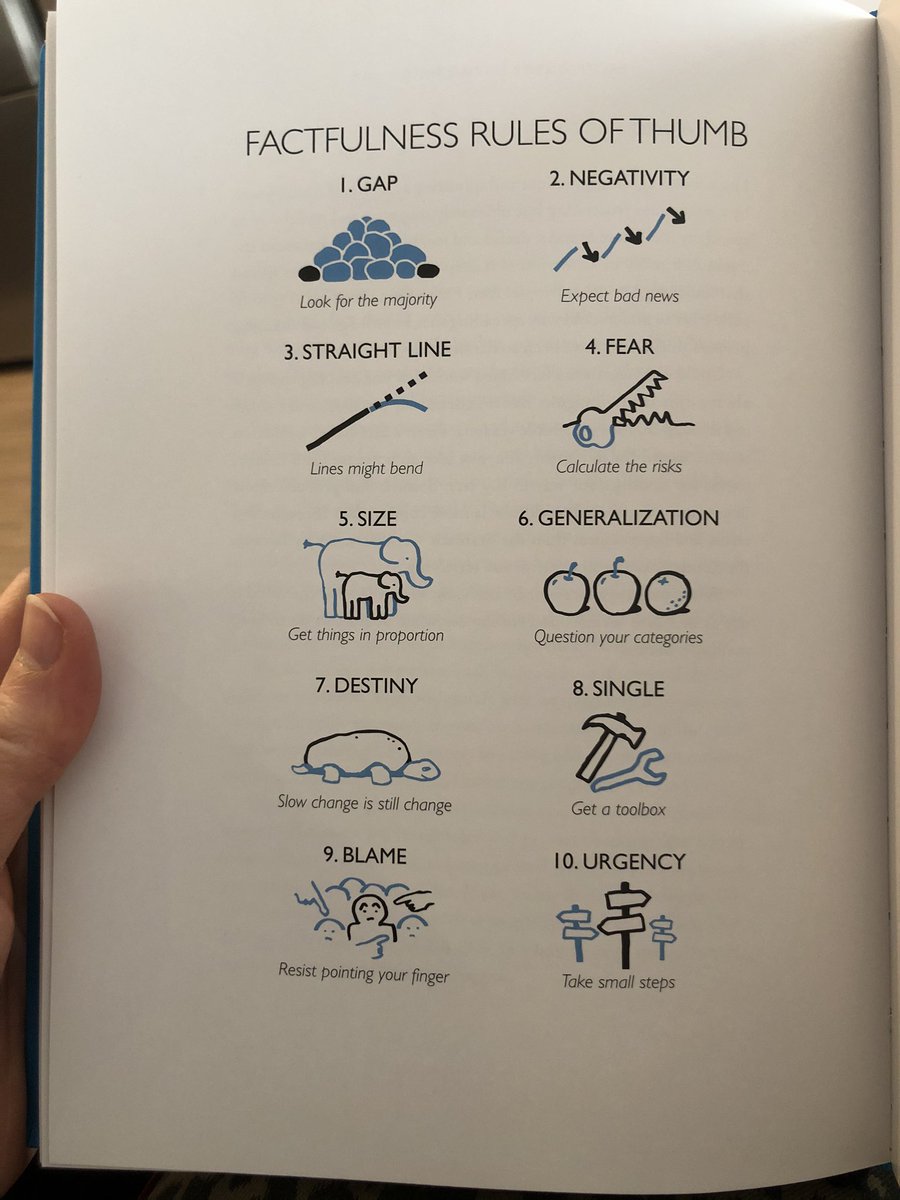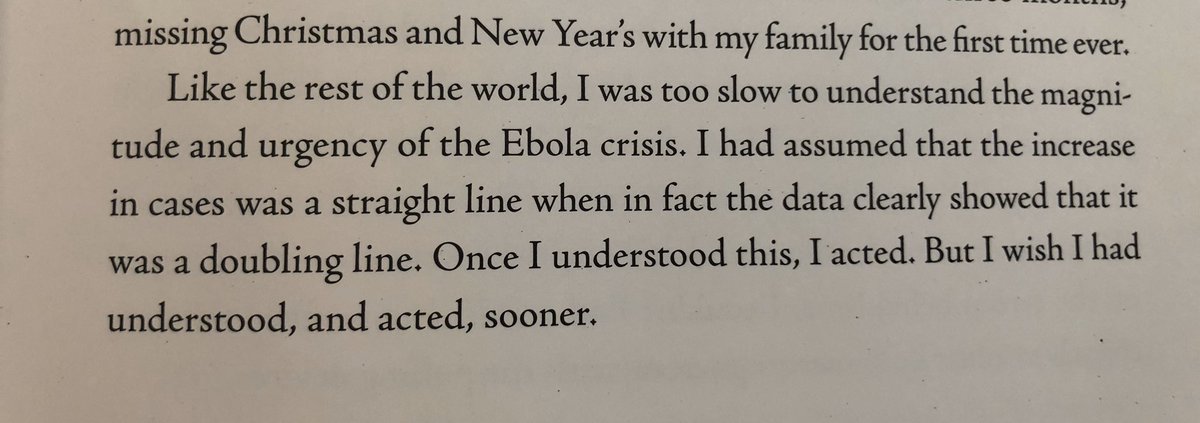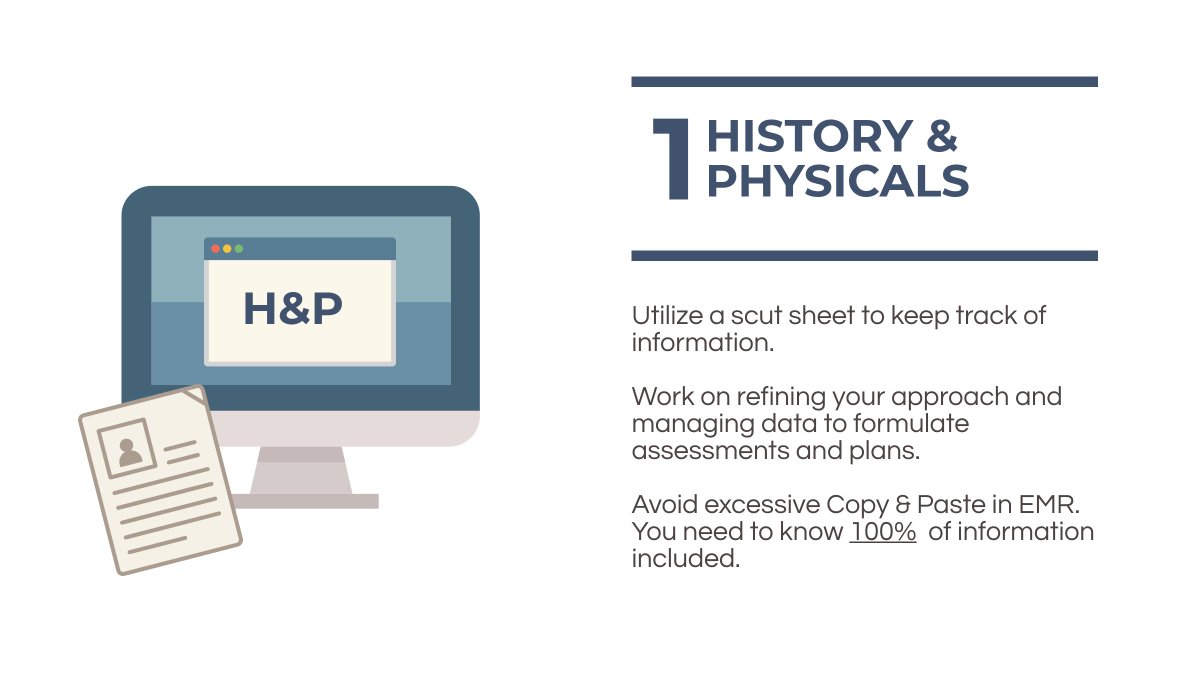I’ve struggled with the insane amount of data and the enormity of the situation, but even more so I’ve struggled fitting it all into my worldview
Then, I remembered @factfulness
Here are 10 instincts we can all hone
#MedTwitter

Stories can paint dramatic portraits of gaps between two groups - but in reality there is almost always an overlap and majority live in between
❗️beware comparisons of averages
❗️beware comparisons of extremes
❗️remember looking down from above distorts view
❗️Bad events get the press, so expect it - good news and gradual improvements are rarely reported (but you can seek it out!)
🔑 Point: distinguish between a level and direction of change - data can be both bad and better
❗️Straight lines rarely exist in real life data
Couldn’t be truer in our #covid reality

🔑 point: Risk = danger ✖️exposure
This is hard right now because the danger and exposure to COVID is very real
But recognize when we are afraid - it taints our world view. Avoid making decisions under panic!
Before deciding if reported piece of data is important - always use right proportion when interpreting.
🔹Look for rates and appropriate comparison groups
Question how you categorize people and assume people are not idiots.
🔹Look closely at the similarities and differences within and across groups.
We all generalize, but the 🔑 point is to avoid generalizing incorrectly!
When change happens slowly, it can appear static - but slow change will add up over time!
🔹Look for gradual improvements
🔹Update your knowledge periodically
🔹Discuss change with elders
🔹Gather examples of cultural change
We see the 🌎 from one perspective, but important to recognize we need many angles to define it
🔹Test your ideas
🔹Keep expertise to your field
🔹Find experts in other fields
🔹Welcome complexity
We tend to look for bad guys to confirm our existing beliefs - recognize when scapegoats are being used!
Instead look for
🔹Causes not villians
🔹Systems not heroes
So I highly recommend the book for its stories and insight
Also, check out the Ted talk from 2014
ted.com/talks/hans_and…






